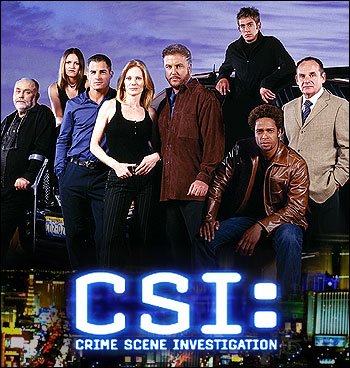
Last night's CSI: Crime Scene Investigation provided a surprising and moving reminder of the role of private belief and public well-being. CSI Greg nearly dies breaking up a "fannysmackin'" attack, a random attack "for the fun of it." There are shades of the cross as Greg (nearly) dies in the beating to save a man he doesn't know.
As we discover, the attackers are mostly young, affluent middle class teens for whom "fannysmackin'" is a game, a sport. After several attacks, and one death, the whole gang is caught.
The end of the show is back at the lab. Nick, Warrick and Sara pack up for the night, deciding to head over and see Greg at the hospital. Catherine tells them that except for "Pig", the leader of the gang, none of the other killers are adults. They are teenagers committing murder because they had nothing better to do, and they don't have a conscience. While Nick sees the Vegas lifestyle as the culprit, Sara puts the blame on the kids.
Gil Grissom, the leader of the team, believes the current culture of shamelessness is at least part of the problem. "We say, do what makes you feel good. We say, what happens in Vegas stays in Vegas. They-these kids--could even kill without a conscience. They don't even feel bad about it." (Sounds like we--American society--is reaping what we've sown. But back to Grissom.) He concludes, "A moral compass can only point you in the right direction. It can't make you go there."
Gil nailed it. What's ironic is that Gil Grissom (played so well by William Petersen) has stated that he is an atheist. (A very nice atheist, who can quote Shakespere, Buddha and Jesus with ease.) (I am tempted to get into the famous, "Is it possible to be a saint without God?" question from Sartre's The Plague. The answer, by the way, is no. For proof, look under the subject of 2oth century Marxism.)
A fascinating bit of moral philosophy from what is still the best show on television.
No comments:
Post a Comment